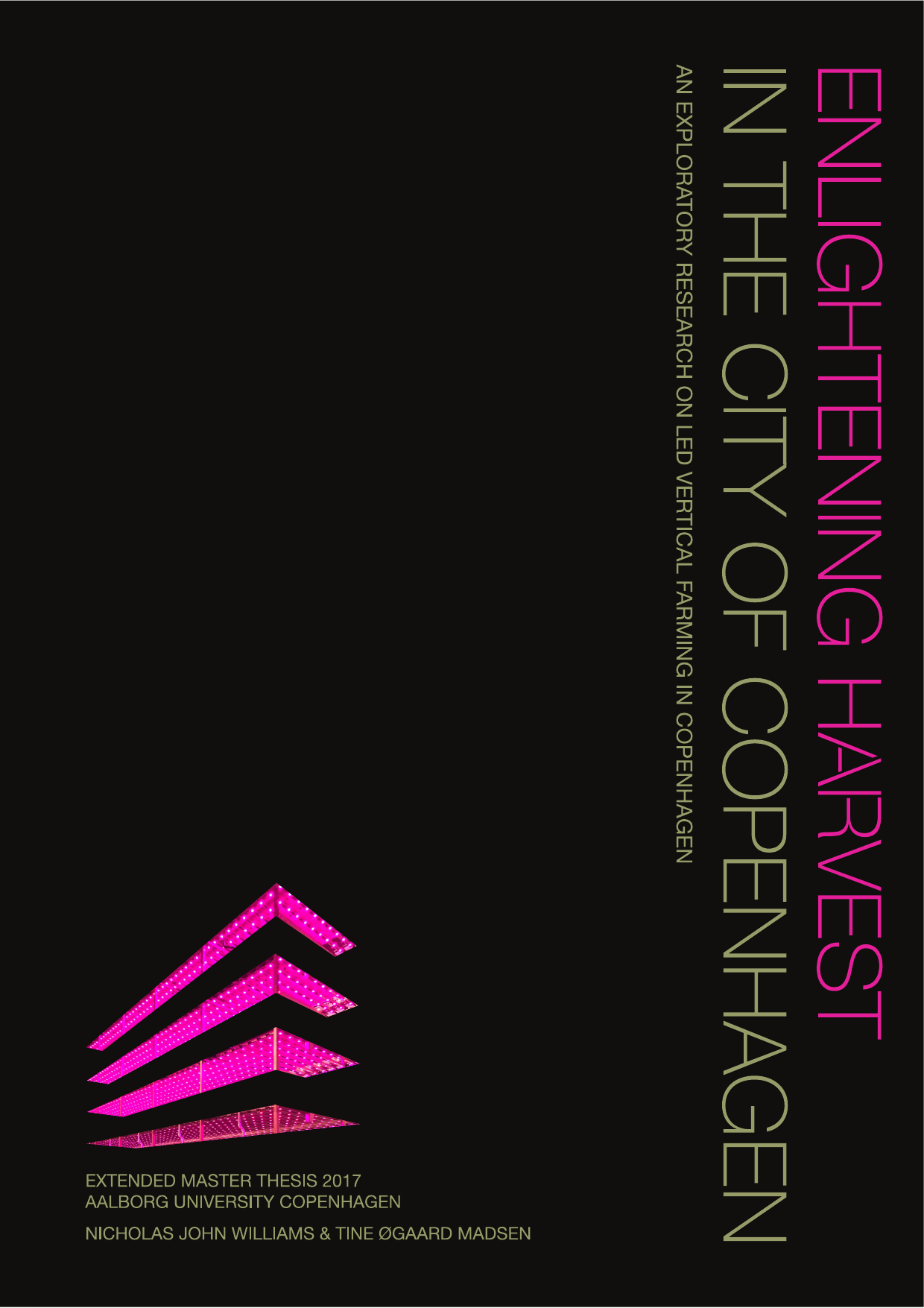
Enlightening Harvest in the City of Copenhagen. An Exploratory Research on LED Vertical Farming in Copenhagen
Authors
Term
4. term
Publication year
2017
Submitted on
2017-06-07
Pages
156
Abstract
Copenhagen’s urban population is increasing more than the current global average and the City of Copenhagen has set out the visions of becoming the world’s first carbon neutral capital by 2025. Linking to these, it is important for the food infrastructure to be assessed critically to become more sustainable and productive for the future needs. The LED Vertical Farming technology has shown potential to grow produce quicker in a closed environment, achieve higher yields per square meter, use little water, no pesticides and no soil. With this form of agricultural technology gaining interest globally, there has been a rise in companies involved within the development of LED Vertical Farming for commercial use but the city of Copenhagen has yet to see any active implementation from entrepreneurs setting up LED Vertical Farming within Copenhagen. Therefore, this master thesis sets out to explore how the new commercial agricultural technology of LED Vertical Farming could provide sustainable possibilities for Copenhagen in relation to the city’s growing urban population, as well as contribute to Copenhagen’s visions for the future. Initiating the thesis from an explorative and qualitative approach, the literature surrounding the subject area of LED Vertical Farming and Copenhagen was investigated followed by a theoretical framework that is based on entrepreneurial perspectives with an understanding of the old and the creation of new paths as well as perspectives on actors, location and technology. SWOT Analysis, Mapping Historical Discourses and Actor Mapping were methods used as pre-analytical tools to understand the subject area further before conducting expert interviews, whereafter an analytical approach to the literature, theories and empirical data was used. Concluding on the explorative research, it was found that although no clear visions to bring commercial agriculture into the city of Copenhagen were stated, LED Vertical Farming provides possibilities to reach other goals and visions. To reach these visions, all actors within urban, peri-urban and rural areas play an important role in working together to create new initiatives. Placing this technological food production in unattractive grey spaces within the city and thereby shortening the food supply chain could lower the environmental impact and create sustainable possibilities. However, the conclusion raises the question of to what extend this control should be taken advantage of or whether the population should be educated rather than providing yet another technological advantage.
Keywords
Documents
